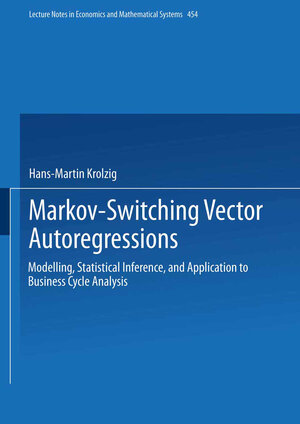
×
![Buchcover ISBN 9783642516849]()
Markov-Switching Vector Autoregressions
Modelling, Statistical Inference, and Application to Business Cycle Analysis
von Hans-Martin KrolzigThis book contributes to re cent developments on the statistical analysis of multiple time series in the presence of regime shifts. Markov-switching models have become popular for modelling non-linearities and regime shifts, mainly, in univariate eco nomic time series. This study is intended to provide a systematic and operational ap proach to the econometric modelling of dynamic systems subject to shifts in regime, based on the Markov-switching vector autoregressive model. The study presents a comprehensive analysis of the theoretical properties of Markov-switching vector autoregressive processes and the related statistical methods. The statistical concepts are illustrated with applications to empirical business cyde research. This monograph is a revised version of my dissertation which has been accepted by the Economics Department of the Humboldt-University of Berlin in 1996. It con sists mainly of unpublished material which has been presented during the last years at conferences and in seminars. The major parts of this study were written while I was supported by the Deutsche Forschungsgemeinschajt (DFG), Berliner Graduier tenkolleg Angewandte Mikroökonomik and Sondeiforschungsbereich 373 at the Free University and Humboldt-University of Berlin. Work was finally completed in the project The Econometrics of Macroeconomic Forecasting founded by the Economic and Social Research Council (ESRC) at the Institute of Economies and Statistics, University of Oxford. It is a pleasure to record my thanks to these institutions for their support of my research embodied in this study.



